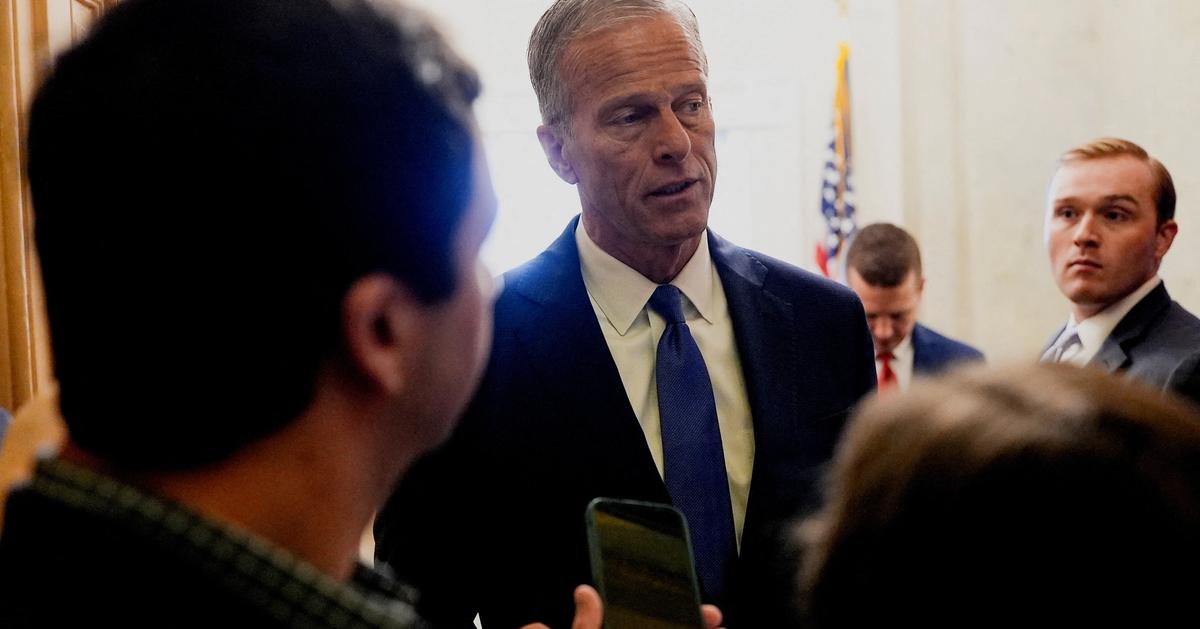The Trump administration moved to lay off federal workers on Friday as Republican leaders ruled out a vote to pay US service members amid the ongoing government shutdown.
Senate Majority Leader John Thune and House Speaker Mike Johnson both indicated on Friday they had no plans to move anything other than the House-passed stopgap spending bill as a way to pay the military, which is expected to miss its first paycheck on Oct. 15 — a key leverage point in the shutdown.
Thune and Johnson signaled that President Donald Trump’s White House may shift money around to pay troops. Still, their decision to pass up a vote on military pay — if they stick to it — is a risk for Republican leaders, who are facing rank-and-file pressure to ease the burden of the shutdown on US service members.
“The White House has now, for 10 days, laid off doing anything in hopes that enough Senate Democrats would come to their senses,” Thune said, laying the blame for the shutdown on Democrats. “But now, now that we’re getting these where people are going to start missing paychecks, this gets real.”
“My expectation is, yes, they’re going to start making some decisions about how to move money around,” he added. “They have to make some hard decisions.”
Just minutes after Thune spoke, White House Office of Management and Budget Director Russ Vought posted on X that “the RIFs have begun,” a reference to reductions in force that the White House has repeatedly threatened.
The reductions in force announced on Friday are related to the effort to pay the military next week, according to a senior White House official.
Vought has frozen spending on projects across the country and floated the idea of cutting federal jobs, but Republican lawmakers had asked him to avoid layoffs and more unilateral budget cuts during the shutdown. The layoffs are “substantial,” said an OMB spokesperson, declining to elaborate on which agencies would be affected.
The Departments of Health and Human Services and Homeland Security are among those implementing layoffs, according to officials.
There’s no end in sight for the shutdown, which began 9 days ago on Oct. 1. The Senate isn’t scheduled to vote again until Tuesday, and the House has no plans to come back in until the Senate passes its bill.
Johnson doubted that a military pay bill could pass the Senate, though it’s not clear yet whether Democrats would block such legislation (in the past, both parties coordinated to ensure troops didn’t miss a paycheck).
Asked if he would put a military pay bill on the floor, Thune said the only answer is the House’s short-term funding bill.
“We have done that; we did it three weeks ago,” Johnson told reporters Friday morning. “The executive branch, the president, is working on ways that he may have, as well, to ensure the troops are paid. The Republican party stands for paying the troops.”
A member of Johnson’s own leadership, Rep. Elise Stefanik of New York, on Thursday called for a vote on a bipartisan troop pay bill from Rep. Jen Kiggans, R-Va., that Democrats also want.

